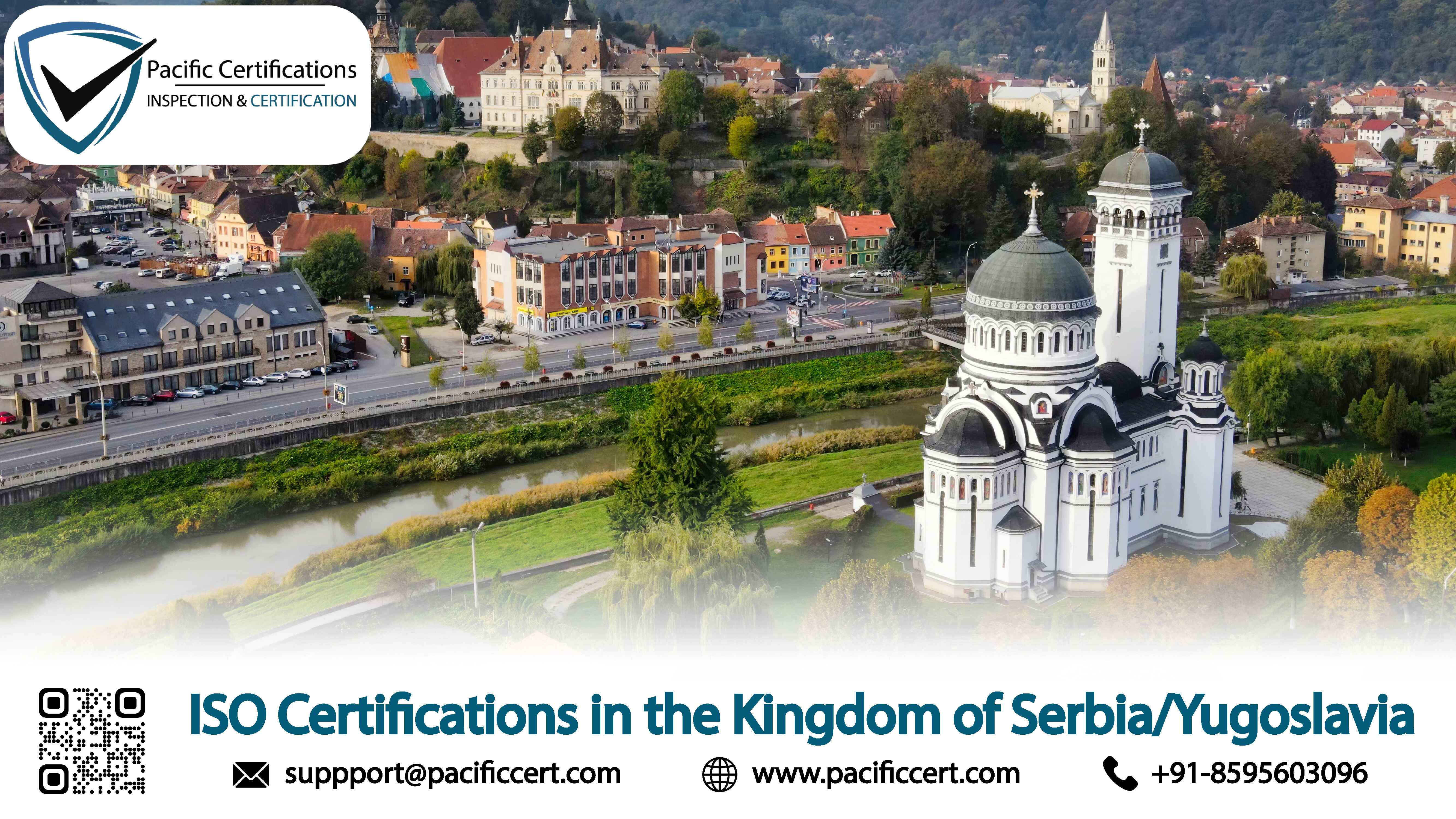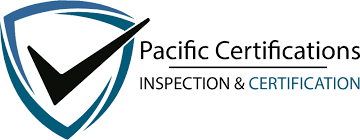ISO Certifications in Kingdom of Serbia/Yugoslavia, Popular Standards, Requirements and Benefits

Introduction
Serbia’s economy blends automotive and electrical components, precision machinery and metalworking, agribusiness and food processing, pharmaceuticals, energy and utilities, river-port logistics on the Danube/Sava and a fast-scaling IT/outsourcing sector centred in Belgrade and Novi Sad. By adopting standards such as ISO 9001 (Quality Management), ISO 14001 (Environmental Management) and ISO 45001 (Occupational Health & Safety), companies in Serbia can improve efficiency, reduce waste and earn trust from partners and regulators. For growing sectors like ICT, construction and agrifood, ISO certification has become a practical step toward attracting international clients and competing confidently in global markets. These programs provide verifiable assurance on quality, safety, environment, information security and continuity that buyers and lenders accept across the EU and global markets.
Contact Pacific Certifications to apply for ISO certification in Serbia, we’ll issue an accreditation-backed proposal with scope, audit days, timelines and a fixed fee.
Economic Context & Industry Overview
Serbia is closely integrated with EU value chains through automotive wiring harnesses, tires, electronics, chemicals and machinery, supported by steady FDI and supplier networks that reach OEMs across Central and Western Europe. Mining (Bor/Čukaru Peki copper) and construction add capital-intensive projects, while ICT and shared services in Belgrade and Novi Sad continue to expand. Across these sectors, public buyers and multinational customers increasingly require auditable management systems as a baseline for vendor approval and due diligence.
Why ISO certification matters in Serbia?
Tier-one buyers and public authorities ask for verifiable systems with clear evidence trails. ISO gives a common assurance language that shortens vendor approval, stabilizes yield on precision lines, improves site safety, proves environmental care and legal compliance, protects data and uptime for digital platforms and demonstrates HACCP-based traceability for food brands. Certification also organizes records, policies, KPIs, competence logs, risk files and corrective actions reviewed by customers, regulators and lenders move faster and with fewer surprises.
Popular ISO Standards in Serbia
Certification Process in Serbia
Preparation starts with an honest view of how work runs today and how evidence is captured. The aim is to make your system auditable without reinventing daily routines. Below are the steps to consider:
List products services sites headcount and high-risk processes for clear scope
Map processes end to end to show handoffs records and responsibilities
Set policy and measurable objectives linked to customer and legal needs
Assemble evidence packs for production maintenance labs IT and logistics
Train process owners keep competence matrices and attendance records current
Calibrate instruments verify methods and file certificates for quick checks
Run internal audits that sample high-risk tasks and supplier interfaces
Hold management review with KPIs audit results complaints legal updates and actions
Schedule Stage 1 for readiness and Stage 2 for implementation verification align multi-site sampling to risk
Blend on-site checks with remote interviews where suitable to reduce travel time
Keep permits licenses and regulatory reports organized for quick verification
What are the requirements of ISO Certifications in Serbia?
Anchor your system in real operations - lines, sites, clinics, warehouses and data rooms and align with Serbian norms so evidence stands up in audits, inspections and buyer reviews; below are the key requirements:

Scope that matches products/services, processes and sites (single or multi-site).
Documented system with controlled procedures and records that match practice.
Risk assessment with controls reflecting real hazards (HACCP, site safety, environmental aspects, privacy/security, energy) and change management.
Competence matrices and training records for process owners and high-risk roles.
Internal audits with reports, nonconformities, root-cause actions and verified closures.
Management review with inputs (KPIs, audits, complaints/incidents, legal updates) and tracked decisions.
Standard-specific artefacts: HACCP & CCP logs (ISO 22000), Statement of Applicability & risk files (ISO/IEC 27001), HIRA & PTW (ISO 45001), aspect-impact registers & objectives (ISO 14001), energy review & EnPIs (ISO 50001).
Legal/other requirements register with permits, inspections, calibrations, monitoring data and supplier compliance evidence.
Tip:Align ISO controls with occupational safety law, environmental permits/monitoring, food and veterinary regulations and the Law on Personal Data Protection (GDPR-aligned); keep calibration certificates, energy/emissions logs, HACCP validations and supplier test reports ready for sampling.
To get your certification process started in Serbia, contact us at [email protected].
What are the benefits of ISO Certifications in Serbia?
Use certification to unlock supplier status with EU customers, support tendering and lender due diligence and stabilise day-to-day operations across shifts and sites; below are the key benefits:

Faster prequalification in buyer portals and public procurement
Fewer incidents, defects and unplanned stoppages on lines and projects
Clear roles and competence paths for critical operations and maintenance
Traceable data for warranty, claims, ESG and due diligence
Better supplier control through audits, KPIs and corrective actions
Measured gains in energy use, waste, emissions, uptime and yield
Stronger brand signals in EU and regional markets
Market Trends
Through 2027–2030, Serbia’s ISO uptake should track two visible drivers. Macro & policy: World Bank Western Balkans reporting indicates Serbia growing ~2.8% in 2025 amid weaker investment, then improving toward the medium term as reforms target jobs, skills and private investment, conditions that tend to harden buyer expectations for auditable systems across manufacturers and utilities. Sectoral pull: Automotive/supplier networks remain central, Serbia ranked among leading wiring-harness exporters and continues to deepen parts capacity, pushing ISO 9001/14001/45001 (and 50001 for energy-intensive plants) across tiers to meet OEM quality, EHS and energy KPIs.
Challenges Faced in Serbia
Operational, regulatory and evidence-readiness issues related to getting certified can cause delays—budget constraints and staffing gaps, incomplete or outdated documentation and records, weak internal audits and corrective actions, supplier-control gaps, multi-site sampling and travel logistics, calibration and permit backlogs and data/privacy mapping for ICT; below are the key challenges:
Budgeting for certification fees, audit time and ongoing system maintenance
Perception of ISO as compliance rather than a performance tool in some teams
Shortage of seasoned internal auditors and process owners outside major hubs
Stalling on document control, internal audits and corrective-action discipline
Multi-site and supplier sampling (tiered chains) complicating logistics and evidence quality
What is the cost of certification in Serbia?
Certification fees are confirmed after scoping and reflect headcount and risk, the number and spread of sites (e.g., Belgrade, Novi Sad, Niš, Kragujevac), your standards set (single vs. integrated such as 9001+14001+45001), sector sampling depth (precision lines and process plants vs. offices) and travel/logistics. Your proposal itemizes Stage 1, Stage 2 and surveillance days, clarifies on-site versus remote activities and highlights any multi-site efficiencies so budgets remain transparent and predictable.
What is the timeline for certification in Serbia?
Timelines depend on document and record readiness, the speed of closing any Stage-1 findings, whether you are single- or multi-site and whether the program is single-standard or integrated. Coordinating audit windows around maintenance shutdowns, production ramps, or release cycles, and auditor travel to regional sites—also affects duration. A well-prepared single site can progress from application to decision within one audit cycle, while multi-site or integrated programs typically require additional planning and sampling time.
How Pacific Certifications can help?
Pacific Certifications audits and certifies ISO management systems for automotive and machining, electronics, metals and chemicals, food processing and cold chain, logistics and river ports, healthcare, utilities and IT/shared services across Serbia. We work under recognized accreditation with transparent pricing and an experienced local team that understands site realities and buyer expectations. Our certificates are accepted by procurement portals and international customers and we are recognized by ABIS.
Request your ISO audit plan and fee estimate. We will help you map Stage 1 and Stage 2 timelines and evidence requirements for your organization. Contact us at [email protected] or visit www.pacificcert.com.
Accredited Training Programs
Pacific Certifications provides accredited training programs in Serbia for ISO 9001, ISO 14001, ISO 45001, ISO 22000/FSSC 22000, ISO/IEC 27001, ISO 22301 and ISO/IEC 20000-1.
Lead Auditor Training: for professionals auditing these systems across Serbian industries.
Lead Implementer Training: for personnel establishing or improving systems in plants, sites, cold chains, hospitals, utilities and ICT platforms.
These programs are conducted online or onsite, depending on client needs under ISO/IEC 17024 for personnel certification.
Contact Us
For ISO Certifications in Kingdom of Serbia/Yugoslavia, contact [email protected]or call +91-8595603096.
Author: Sony
Read More at: Blogs by Pacific Certifications

